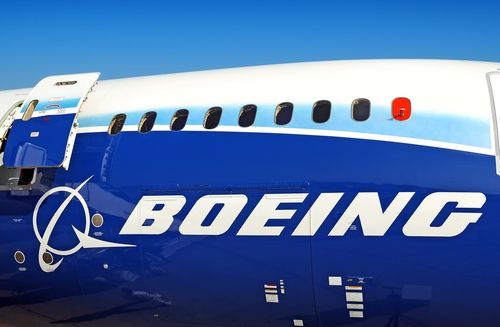Boeing has become the centerpiece of Trump’s trade approach.
- Gold tumbles as traders book profits ahead of key US inflation data
- Australian Dollar remains stronger following PBoC interest rate decision
- Gold tumbles as traders book profits ahead of key US inflation data
- Forex Today: US Dollar extends slide, Gold surges past $4,300
- Meme Coins Price Prediction: Dogecoin, Shiba Inu, Pepe flash bearish potential
- Japanese Yen strengthens on safe-haven flows, USD/JPY tests 150.00 amid weaker USD

Boeing has become the unexpected centerpiece of Donald Trump’s entire global trade approach.
Since he returned to the White House and restarted his tariff push in April, almost every country that reaches a new trade agreement with the U.S. ends up announcing a multi-billion-dollar Boeing jet order.
The deals are precise and loaded with political calculation. When South Korean President Lee Jae Myung visited Washington, Korean Air dropped a $36.2 billion order for 103 Boeing jets. They added another $13.7 billion deal with GE Aerospace, making it the largest purchase in the airline’s history.
Trade partners add Boeing deals after signing with Trump
Japan followed suit right after their own trade agreement. They ordered 100 Boeing planes, though no price tag was made public. The playbook stayed the same in Southeast Asia. Malaysia, Indonesia, and Cambodia all included Boeing orders as part of their agreements with the Trump administration.
Then in May, the UK threw down a $10 billion Boeing purchase tied to its trade deal with Washington. A few days later, on May 9, IAG, the parent company of British Airways, placed a separate 32-plane order worth $12.7 billion.
John Grant, founder of aviation firm Midas Aviation, explained the reason planes keep showing up in Trump’s deals: “The simple answer is that planes are high profile and Trump always wants profile.” He also said planes are “very visible statements of trade and have a high value,” which makes them ideal in these types of agreements.
There’s also strategic convenience. Wendy Cutler, Vice President at the Asia Society Policy Institute, said high-value Boeing orders help governments show they’re working to reduce their trade surpluses with the U.S., the same reason Trump used to invoke emergency powers to launch tariffs in the first place.
And not all imports go down easily. Aircraft are less likely to upset domestic industries than things like metals or farm goods. Homin Lee, a senior macro strategist at Lombard Odier, said, “Imports of these airplanes are not politically difficult for most trading partners of the U.S., unlike metals or agricultural imports.”
Boeing fits into Trump’s economic and political toolkit
Japan protects its rice farmers. South Korea is one of the top steel exporters to the U.S. and doesn’t want to scale back. According to the U.S. International Trade Administration, Seoul was the fourth-largest steel exporter to the U.S. in 2024. So, Boeing becomes the easy trade chip.
The long delivery times are another bonus. Boeing’s current production backlog is 11.5 years, while Airbus trails close behind at 10.6 years, per market researchers at Forecast International. This gives countries breathing room. They can commit now and space out the payments over a decade.
But this isn’t just for show. Homin Lee said the planes are genuinely needed. The global tourism industry is growing again. The International Air Transport Association said airline profits are expected to hit $36 billion in 2025, up from $32.4 billion the year before.
Margins are projected to climb to 3.7%, and overall revenue could top $979 billion.
Still, the dominance of Boeing in all of this is not just economic, but also symbolic. Wendy Cutler said Boeing is “an iconic American company.” And since Airbus is the only other player in the aircraft game, buying from the U.S. means buying from Boeing.
Even with Boeing’s recent safety concerns, it remains central to Trump’s trade theater. In 2024, a door panel blew off on an Alaska Airlines flight. Whistleblowers flagged quality issues. Still, the company has made changes. Grant said those changes are already being noticed by airlines.
And now, confidence seems to be rebounding. A Reuters report from June said airline executives are showing more faith in Boeing’s ability to deliver aircraft at the “right quality.”
No matter what industry critics say or how long the delivery window is, Trump’s trade playbook keeps coming back to Boeing. If a country wants a deal, they better want a plane.
KEY Difference Wire: the secret tool crypto projects use to get guaranteed media coverage
Read more
* The content presented above, whether from a third party or not, is considered as general advice only. This article should not be construed as containing investment advice, investment recommendations, an offer of or solicitation for any transactions in financial instruments.


